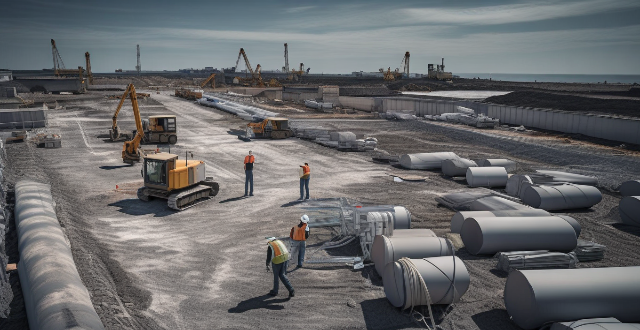When working with heavy machinery, it is crucial to follow safety regulations to prevent accidents and injuries. These include wearing appropriate personal protective equipment (PPE), receiving proper training and maintaining certifications, conducting regular maintenance and pre-operation checks on machinery, practicing safe work practices such as keeping the work area clear and using machine guards, and being prepared for emergencies by knowing emergency procedures, having a first aid kit available, and reporting incidents. By adhering to these guidelines, workers can help ensure a safe working environment for themselves and others.

Safety Regulations for Working with Heavy Machinery
Working with heavy machinery can be dangerous if proper safety measures are not taken. Here are some important safety regulations to follow when working with heavy machinery:
1. Personal Protective Equipment (PPE)
- Wear appropriate PPE: Always wear the required personal protective equipment such as hard hats, safety goggles, gloves, and ear protection when operating or working near heavy machinery.
- Dress appropriately: Avoid loose clothing or jewelry that could get caught in moving parts of the machinery. Wear sturdy shoes with slip-resistant soles.
2. Training and Qualifications
- Receive proper training: Ensure that you have received adequate training on the specific machinery you will be operating. This includes understanding its functions, controls, and potential hazards.
- Stay current with certifications: Maintain any necessary certifications or qualifications required to operate the machinery safely.
3. Machinery Maintenance and Inspection
- Regular maintenance: Follow a regular maintenance schedule to ensure that all machinery is well-maintained and functioning properly.
- Pre-operation checks: Conduct pre-operation checks before using any machinery to identify any potential issues or defects that could cause accidents.
4. Safe Work Practices
- Clear work area: Keep the work area around the machinery clean and free of obstacles to prevent tripping or other accidents.
- Use machine guards: Make sure that all guards and safety devices on the machinery are in place and functioning correctly.
- Avoid unauthorized access: Restrict access to areas where heavy machinery is being used to authorized personnel only.
5. Emergencies and Incident Response
- Know emergency procedures: Be familiar with emergency shut-off procedures and evacuation plans in case of an accident or fire.
- Have a first aid kit available: Keep a first aid kit nearby in case of injuries while working with heavy machinery.
- Report incidents: Report any near misses or incidents immediately to your supervisor so that corrective actions can be taken to prevent future occurrences.
In summary, working with heavy machinery requires adherence to strict safety regulations to protect both operators and those around them from harm. By following these guidelines, you can help ensure a safe working environment for everyone involved.